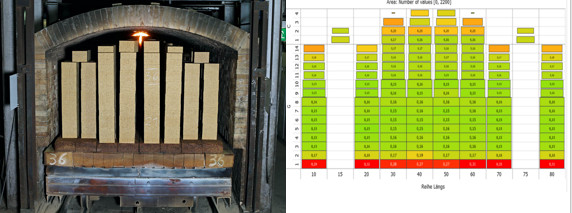CD Laboratory for Dependable Intelligent Systems in Harsh Environments
Head of research unit
Commercial Partner
Duration
Thematic Cluster


In this CD Laboratory, machine learning (ML) methods are being researched to make manufacturing and production processes more efficient. This project focuses on intelligent systems for data-driven process monitoring in harsh and inaccessible environments.
The aim here is to ensure that the ML models used not only provide accurate predictions, but also a comprehensible basis for decision-making. In addition to accuracy, reliability, comprehensible model interpretations and the ability to quantify model uncertainties are required for broad acceptance of ML-based monitoring systems in industrial applications.
In reality, many disturbances and environmental influences can occur that must be taken into account. Important requirements for a real system are Robustness against outliers, adaptability under changing conditions and dealing with limited data quality. The approach pursued involves learning and transferring knowledge from similar processes in order to compensate for the limited availability of data. In safety-critical systems, it is particularly important to be able to make accurate predictions and understand the behaviour of a model.
In order to achieve significant progress in data-based process monitoring, the focus is on the following three research areas:
Robust representation: Deep neural networks and hybrid models will be designed to recognise complex patterns and reduce manual intervention. These models should also help to identify outliers, expand the data set and use semi-supervised learning to overcome the challenges of limited data volumes or low data quality and improve the adaptability of the models.
Learning and uncertainty estimation: By using Bayesian methods in combination with neural networks, uncertainty estimates for predictions are to be provided. In this context, transfer learning methods are also used to effectively utilise knowledge from related applications.
Explainability and process optimisation: In this research area, methods are to be developed that reveal the decision-making principles of black-box ML models and make them comprehensible to experts. In addition, possibilities for reducing domain shifts and adapting models during the utilisation phase are being researched.
The innovative content of this CD Laboratory lies in both the methodological development and the implementation of data-driven methods for condition monitoring. The main application of this research is the modelling of refractory materials during production and their use in steel production. However, the methods developed are versatile and can be used in various applications.


Christian Doppler Forschungsgesellschaft
Boltzmanngasse 20/1/3 | 1090 Wien | Tel: +43 1 5042205 | Fax: +43 1 5042205-20 | office@cdg.ac.at

